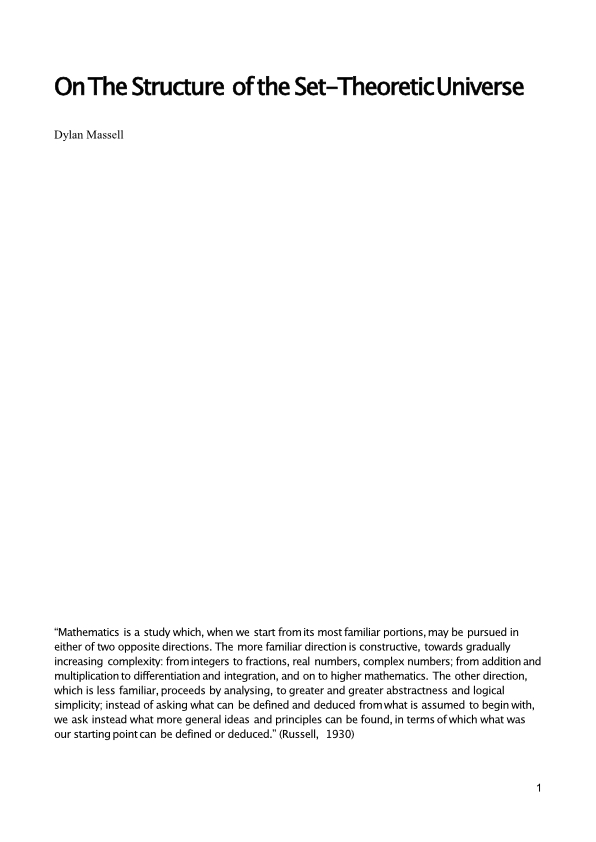Axioms Of The Set Theoretic Universe
On The Structure of the Set-Theoretic Universe [PDF]
I wrote this essay my senior year at University of St Andrews as a philosophical exploration of axiomatic systems within set theory. It seems difficult going back to it now, not much was argued for, however I feel it exposes the foundations for more modern constructivist views today.
Abstract
There are several reasons for choosing a different set of axioms for a particular theory, ranging from mathematical curiosity (e.g. one wishes to explore the pragmatic differences between an axiom being held as true or not) to, as is more often the case, a metamathematical motivation. This may include, among other reasons, adopting a different set of axioms because they assume different philosophical beliefs about the field of study. Another common reason is because the “overall picture” of the field becomes much more aesthetically pleasing to the intuition with a different set of axioms, or in other words, it makes more sense to use those particular axioms. Set theory is a branch of mathematics which is subdivided into several various axiomatizations, or theories with different axioms. The predominant theory is known as Zermelo-Fraenkel set theory. However, there are countless alternative axioms for set theory one can take, from von Neumann, Bernays, and Gödel’s theories which incorporate classes, to Quine’s New Foundations theory, and even to Intuitionistic set theory which uses a different logic altogether, and hence a different mathematics, to describe the behavior of sets.
The main intent of this paper is to examine the different axioms of set theory which present different intuitive picturesof theset-theoretic universe, thatis,all the objects whichset theory as a branch of mathematics aims to study. These different axiomatizations of set theory have been developed by different mathematicians and philosophers over the course of the last century. In particular, we will give particular attention to why, intuitively or philosophically, we should choose to accept one particular axiom system over another. However, many of the various axiom systems, while not strictly philosophically justified, do have a pragmatic mathematical justification; namely the theories they produce are both interesting in their own right as a field of study, and often they can even prove useful in other branches of mathematics.




